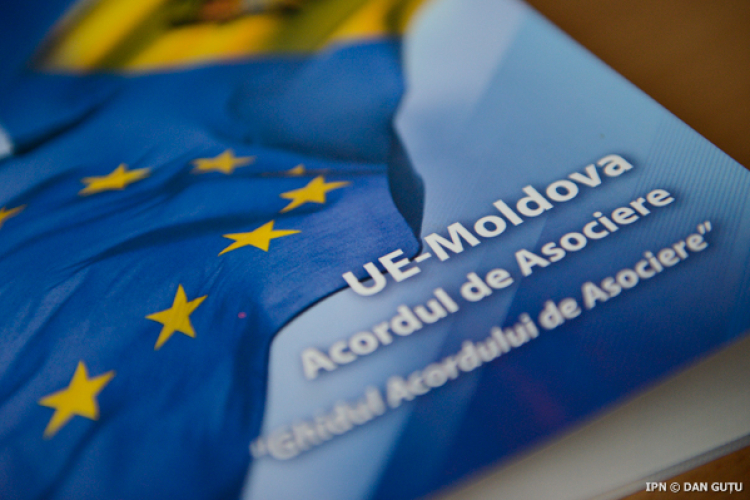The objectives set when signing the Association Agreement with the European Union concerning political association and economic integration were achieved, said Moldova’s former ambassador in Brussels Eugen Caras. According to the diplomat, the pace at which the Association Agreement and the Free Trade Agreement are implemented enabled Moldova to receive the EU candidate status, IPN reports.
According to representatives of civil society, a large part of the commitments undertaken by Moldova when signing the Association Agreement were achieved. It primarily goes to the harmonization of the national legislation with the Community acquis.
“The implementation of the Association Agreement envisions the transposition of 70% of the European legislation. Half of the agreed European legislation is already part of the legislation of the Republic of Moldova. It is very hard to measure the progress made in the fields of justice and the rule of law in percentage or figures. The fact that we didn’t manage to prove by concrete actions the improvement of the situation attracted less approbation. As to the rest, if we conduct an assessment, we will see that the political dialogue with the EU is now unprecedented and this refers not only to visits, but the visits are also an indicator of the advanced relations with the EU. In the field of energy, we made progress in terms of legislation and also in terms of infrastructure and access to the European energy market,” IPRE executive director Iulian Groza stated in the program “Parallel 47” on Radio Moldova station.
Former Ambassador to Belgium Eugen Caras said the advantages of the European integration include enormous economic opportunities, primarily in the context of the war in Ukraine, which drastically limited the commercial relations with the East. The Moldovan products’ access to the European market and the possibility of traveling freely in the EU are among the benefits felt by each citizen.
“The goal set when the Association Agreement was signed, which is to ensure integration into the European Union, was achieved. The political association and economic integration are the objectives of this agreement and we see that this year the European Union granted the candidate status to the Republic of Moldova. This was possible thanks to the pace of implementing the Association Agreement. Owing to the Free Trade Agreement, more than 2/3 of the exports go to the European market. Together with the war in Ukraine, trade with the Eastern marked decreased considerably. The producers from the Republic of Moldova stand to gain from this agreement with the EU. Society stands to gain. So, the results of the association are very clear for the citizens. It also goes to visa liberalization,” said the Head of the European Integration Division of the Foreign Affairs Ministry Eugen Caras.
The Moldova-EU Association Agreement was signed in June 2014. Eight years later, the Republic of Moldova was granted the EU candidate status.
- Patients from districts, helped by rescuers after ambulances were blocked by ice
- Authorities, in crisis mode. The Army and IGSU intervene in dangerous areas
- Romania will grant Moldova 1.7 million euros for forest assessment
- EU Humanitarian Aid: 8 million euros for the Republic of Moldova in 2026
- Deputy on APL reform: Localities do not disappear, but there will be mergers of town halls


